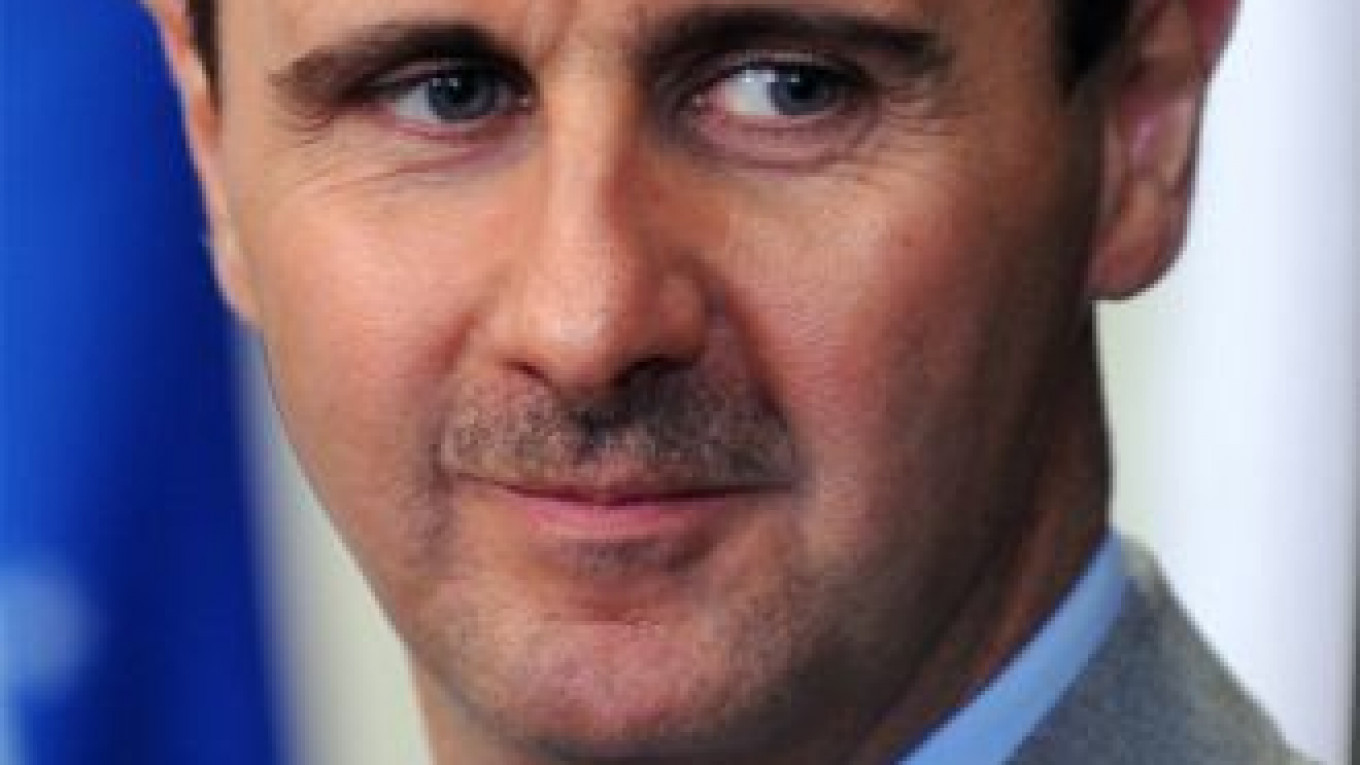Three Russian state banks accused by U.S. senators of funding the Syrian regime denied the charges Thursday, saying the allegations were an attempt to derail peacemaking efforts.
Two Republican senators and two Democrats wrote a letter to the U.S. Treasury last week saying that VTB, Vneshekonombank, or VEB, and Gazprombank are doing their business with Syria as usual despite international sanctions imposed on Syrian President Bashar Assad's regime.
The senators said VEB had facilitated Syrian payments for S-300 missile batteries, while Assad had deposited his funds at VTB, and Gazprombank had financed oil supplies to Syria.
The lawmakers urged the U.S. Treasury to crack down on Russian banks that had allegedly helped the Syrian government, freeze their accounts and prevent them from doing business in the U.S.
"Russian bank support violates international sanctions by enabling Syria to pay for imports and receive funds for exports," the senators wrote. "This assistance eases much of the financial burden on the Assad regime, allowing it to continue military purchases and pay the soldiers that sustain the war in Syria."
The state banks denied the claims and called the senators' accusations an effort to derail the recently launched negotiations between the U.S. and Russia on eliminating Syrian chemical weapons.
"VTB does not hold funds belonging to President Assad or any other member of the Syrian leadership. We consider these allegations to be a deliberate attempt to mislead the American people," the bank said in a statement.
VEB and Gazprombank also denied the claims, saying they have not violated any laws.
"This is not the first time the U.S. has put pressure on Russia's banking system and it could have gone unnoticed if not for the context around it," Mikhail Margelov, head of the Federation Council's international relations committee, said, Interfax reported. .
The senators' allegations came shortly after the U.S. and Russia agreed on a strategy to handle Syria's chemical weapons stockpiles and a military strike against the country was postponed.
Recent media reports claim that Russia keeps exporting S-300 missile batteries to Syria. Israeli authorities claim that one payment for the systems was made earlier this year through VEB, News.ru Israel agency reported in May.
But some experts do not see the funding of arms supplies to Syria as a violation of international sanctions or any international law.
"Let us recall that currently there are no sanctions against weapons supplies to Syria imposed by the international community," said Boris Dolgov, a senior researcher at the Russian Academy of Sciences' Institute of Oriental Studies. "If Russia has contracts to supply weapons — the president said it does — and some banks agree to give loans to finance the deals, this does not go against the law."
He also said that, on the contrary, the senators' statements themselves were unlawful because financial statements on individual bank accounts are confidential and it is illegal to divulge this information.
"There were earlier reports that Bin Laden was carrying out financial operations through American banks. But if we ask them now to reveal these accounts, we are unlikely to get any answers," Dolgov said.
The sanctions against Syria, adopted in May by the U.S., Britain and the European Union, include a number of export and import bans, an oil embargo, as well as restrictions on investments, financial activity and the transportation industry.
In addition, 179 persons associated with the violent repression in Syria are targeted with an asset freeze and a travel ban. The assets of 54 entities linked to the repressive policies, including the Central Bank of Syria, are frozen within the EU.
The sanctions will apply until June 2014.
Contact the author at a.panin@imedia.ru
A Message from The Moscow Times:
Dear readers,
We are facing unprecedented challenges. Russia's Prosecutor General's Office has designated The Moscow Times as an "undesirable" organization, criminalizing our work and putting our staff at risk of prosecution. This follows our earlier unjust labeling as a "foreign agent."
These actions are direct attempts to silence independent journalism in Russia. The authorities claim our work "discredits the decisions of the Russian leadership." We see things differently: we strive to provide accurate, unbiased reporting on Russia.
We, the journalists of The Moscow Times, refuse to be silenced. But to continue our work, we need your help.
Your support, no matter how small, makes a world of difference. If you can, please support us monthly starting from just $2. It's quick to set up, and every contribution makes a significant impact.
By supporting The Moscow Times, you're defending open, independent journalism in the face of repression. Thank you for standing with us.
Remind me later.






